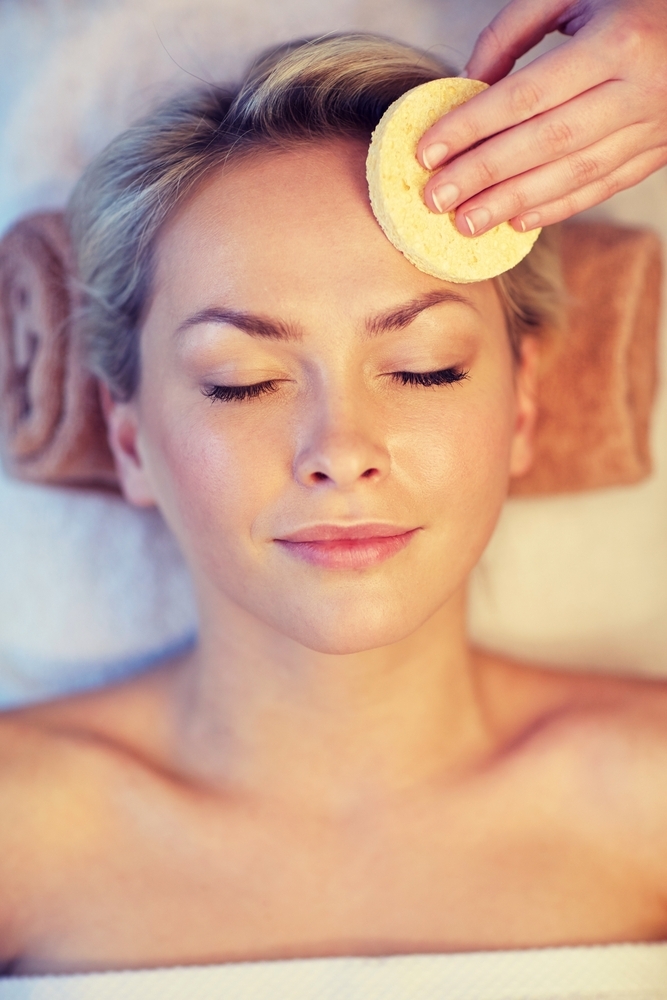If you have a chronically oily T-zone while other areas of your skin are dry, you probably have combination skin. Caring for combination skin requires a delicate balance between products that are strong enough to stop and control oil, while still being gentle enough to not cause irritation and further dryness to other areas of your face. Two of the most important steps in any skin care routine, but especially combination skin, are washing and exfoliating. Keep reading to learn what types of products you should be using and how to use these products on your combination skin.
Wash
Every good skin care routine begins with washing your face. When you have combination skin, it is important to use the correct cleansers to avoid aggravating dry spots or not properly removing oil. The key to washing combination skin is to use a gentle cleanser that removes dirt, oil and makeup in a mild way. Believe it or not, there is no single cleanser that works perfectly for each and every person that has combination skin, you will have to experiment a bit to find a formulation that works for your skin. If you have combination skin that leans towards the oilier side, check out gel-based or very mild foaming cleansers and if you have combination skin that is a bit drier, look for cleansing lotion.
Using the proper cleansing technique is also important in caring for combination skin. You want to begin with warm, not hot, water. Hot water will aggravate any dry areas of your skin because it strips moisture from your skin. Apply your chosen cleanser to your fingertips and wash your face using light pressure and circular motions. Aim to wash for about 30 seconds to one minute to allow the ingredients in your cleanser to fully penetrate your skin. Rinse your face completely using warm water, then pat dry with a clean washcloth. Although using a clean washcloth each and every time you wash your face can seem excessive, it keeps your washcloth from becoming a breeding ground for bacteria.
Exfoliate
Exfoliation is critical for healthy skin because it removes dead skin cells that accumulate on the surface of your skin. Your skin is constantly undergoing a process known as desquamation, or cell turnover, and the final stage results in dead skin cells on your skin. In order to reveal the healthier and more radiant skin cells, you need to remove the dead skin cells. There are two types of exfoliation – chemical and physical – and for combination skin, you definitely want to use a chemical exfoliator.
Alpha-hydroxy acids, such as glycolic and lactic acids, gently break up and dissolve the bonds that hold your dead skin cells together. When the acids break these bonds, the dead skin cells are sloughed away to reveal the newer and healthier skin cells your epidermis has been producing.
Caring for combination skin doesn’t have to be confusing and complicated. The main objective with combination skin is to keep it balanced. Consistent washing with a gentle cleanser and frequent exfoliation with mild exfoliants help keep your combination skin in balance and under control.






